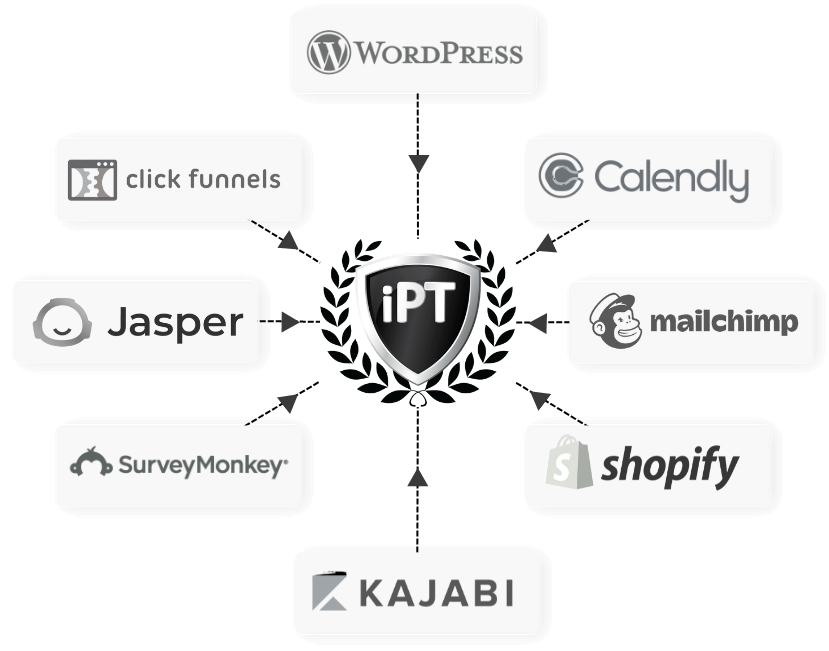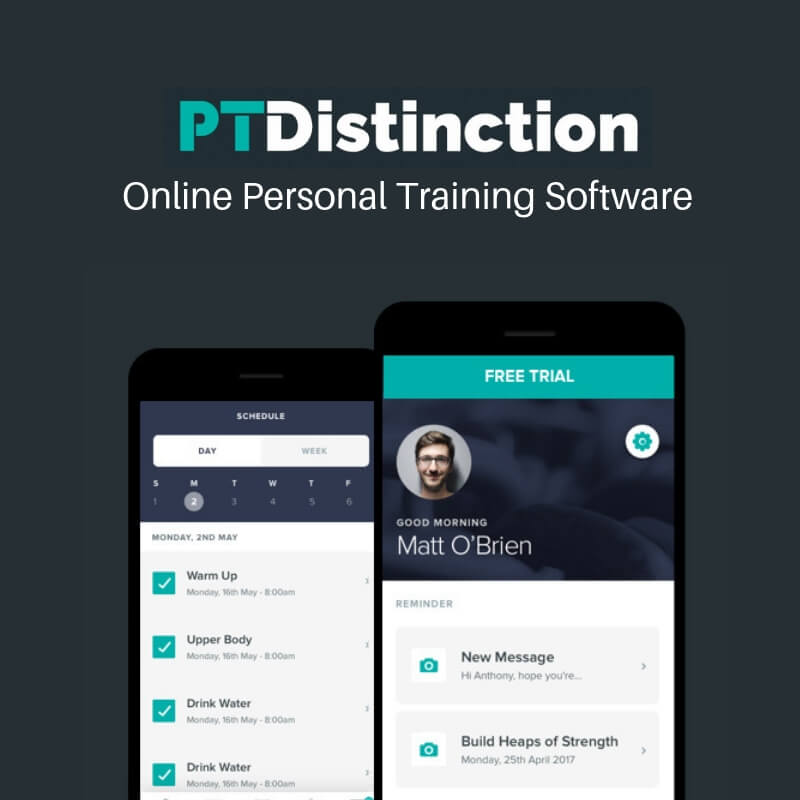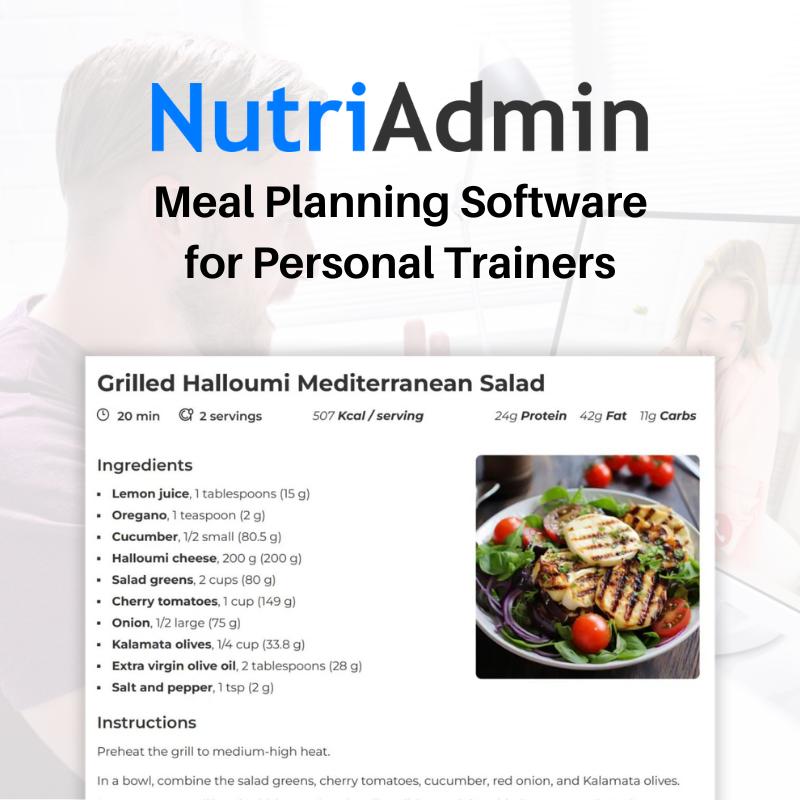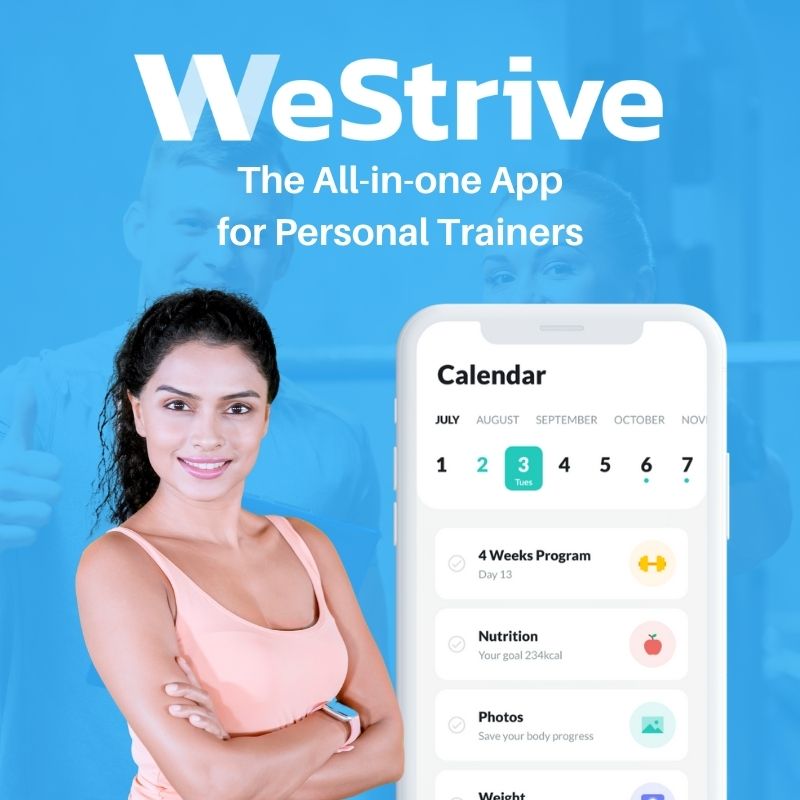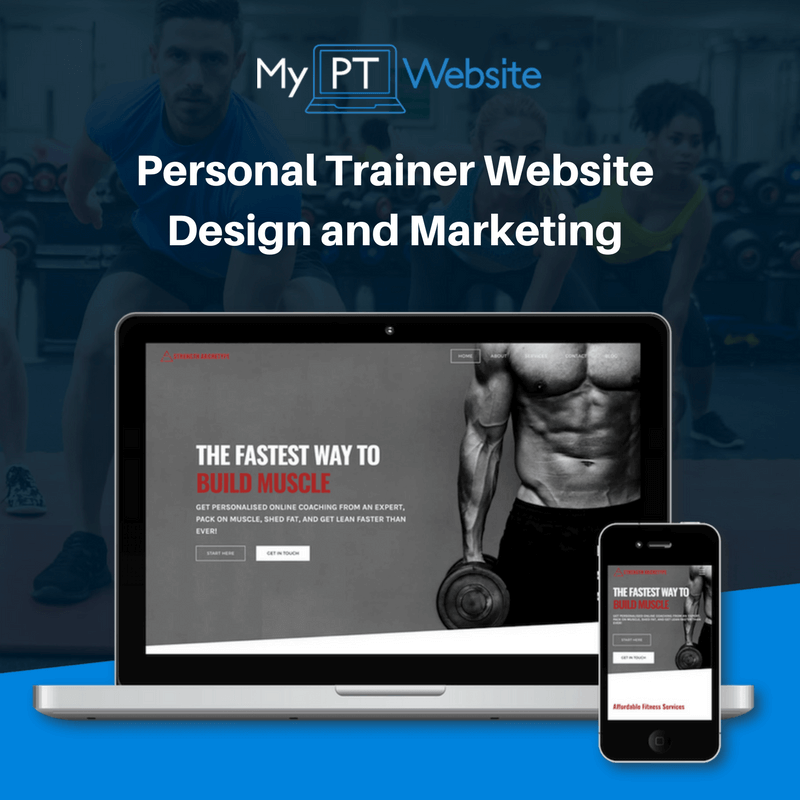|
Introduction
What You'll Learn
In this section, we will discuss various considerations you should take into account when designing a program for your client. These include training age, exercise history, injuries, psychology, stress and nutrition. We will also look at creating some systems, so you can take these considerations into account before you work on the program.
Why is This Important?
We're going to look at evidence based practice, we're going to look at what it is and why you need it, we're going to look at your role, and common mistakes in that, how to essentially get better results with our clients.
In this section, we will discuss various considerations you should take into account when designing a program for your client. These include training age, exercise history, injuries, psychology, stress and nutrition. We will also look at creating some systems, so you can take these considerations into account before you work on the program.
Why is This Important?
We're going to look at evidence based practice, we're going to look at what it is and why you need it, we're going to look at your role, and common mistakes in that, how to essentially get better results with our clients.
What is Evidenced Based Practice?
Evidence based practice, it's this kind of triangular approach. And the reality is, unfortunately, that a lot of people focus on that top one, clinical expertise. So we would define that as, my current knowledge base, and me presenting that to other people. And that can often be clouded by biases. So I'll give you an example of a bias. When I first started out in the nutrition industry, I did so because I lost five and a half stone, I had IBS, ADHD, eczema, an asthma. And it was through following a low carb paleo diet that I reclaimed my health and lost loads of weight.
Now, what that did is, it gave me a personal bias towards a paleo low carb diet. It made me think, and believe wholeheartedly that the paleo low carb diet was the king of all diets, that I should try and get everyone to follow it. And unfortunately, I did. And many, many years ago, I learnt this wasn't the case, I learnt the actual mechanisms of what happened when I embarked on this diet, and the changes that I was making. And unfortunately, my work as a nutrition coach was guided too much by clinical expertise, by what I'd experienced. And that was my personal bias.
So I want you to be aware of this, because your judgment, and what you believe in, and what you read will be clouded by your personal bias. So for example, if you followed a high carb, high grain, which is kind of the opposite to what I do, diet, then you will be clouded by that approach, and you will be influenced to coach your clients in that way as well. So it's important that we have to look at all of the available research. And that's why you need to be aware of the research that's out there, or pay attention to companies like ours that are nutrition education companies trying to distill the research down into usable, realistic, understandable information.
Now, the third wheel of this is the patient, or the person that we're trying to coach, their values and preferences. Because while the research might say something, while our expertise might have experienced something, actually implementing that is the biggest crux of all of this information. If that person doesn't, can't, or doesn't believe in it, they're not going to follow it. So we have to have this approach around, are experience and expertise the best available evidence? And then, what is actually workable, and doable, and in line with the person that we're coaching's goals. We've got to take this three pronged approach.
So what is a coach, and what isn't it? Now, I remember when I was a young coach, I was very kind of dictorial in my approach. I would tell a client what to do, "Here's your diet plan, here's the training, you should go to bed at this time, you should drink this much water." And I was very much like, "Do this, don't do that. And I've kind of done my job here, and it's your responsibility of whether you follow it or not." And I still see a huge amount of this in the fitness industry, people just telling people what to do, and hopefully they will follow it.
And reality is, this is not coaching, this is just telling. And actually, it has a very low success rate, which I found as a young coach. So this is really what we call the expert trap. And the problem is, is our clients are actually asking for this. You'll get a client come up to you and go, "Hey, Ben, can you tell me what to eat?" And I can be like, "Well, yeah, I can and I will do that as a coach. But I'm actually going to teach you, and I'm going to empower you, and I'm going to make you autonomous."
And this is one of our favorite words in the BTN Academy, creating autonomy. You're teaching the client over time, to take control of their health. Because if we just tell people what to do, and they see themselves as on a diet, they'll follow that advice for the period of time they're willing to go on a diet. And when they feel they've stopped their diet, they'll stop following that advice because they've just been told what to do for that period of time, for that diet. And this is the expert trap. I do not want you to get stuck in it, it's important, it doesn't create a world class coach, falling into this trap.
So first and foremost, as a coach, what is your job? Well your job is to build rapport, it's to build a relationship. When people have trust between each other, change is easy. I'm trying to build trust with you right now in this video. If we build a level of trust, you will see my information and what I'm teaching here as more valuable, and you're more likely to go away and apply it, and use it.
So we have to embrace the person that's in front of them, and really build a relationship for change. It's very hard to change without rapport and trust. So when we go through this rapport process, and we start to talk to our clients, we're a big fan, in the BTN Academy, of using a tool called motivational interviewing. It's a way to collect data and understand a person to create a greater level of change. And what this does is, it actually starts to navigate conversations where you lead the client to the change rather than you try and influence the change through just advice.
Now, what that did is, it gave me a personal bias towards a paleo low carb diet. It made me think, and believe wholeheartedly that the paleo low carb diet was the king of all diets, that I should try and get everyone to follow it. And unfortunately, I did. And many, many years ago, I learnt this wasn't the case, I learnt the actual mechanisms of what happened when I embarked on this diet, and the changes that I was making. And unfortunately, my work as a nutrition coach was guided too much by clinical expertise, by what I'd experienced. And that was my personal bias.
So I want you to be aware of this, because your judgment, and what you believe in, and what you read will be clouded by your personal bias. So for example, if you followed a high carb, high grain, which is kind of the opposite to what I do, diet, then you will be clouded by that approach, and you will be influenced to coach your clients in that way as well. So it's important that we have to look at all of the available research. And that's why you need to be aware of the research that's out there, or pay attention to companies like ours that are nutrition education companies trying to distill the research down into usable, realistic, understandable information.
Now, the third wheel of this is the patient, or the person that we're trying to coach, their values and preferences. Because while the research might say something, while our expertise might have experienced something, actually implementing that is the biggest crux of all of this information. If that person doesn't, can't, or doesn't believe in it, they're not going to follow it. So we have to have this approach around, are experience and expertise the best available evidence? And then, what is actually workable, and doable, and in line with the person that we're coaching's goals. We've got to take this three pronged approach.
So what is a coach, and what isn't it? Now, I remember when I was a young coach, I was very kind of dictorial in my approach. I would tell a client what to do, "Here's your diet plan, here's the training, you should go to bed at this time, you should drink this much water." And I was very much like, "Do this, don't do that. And I've kind of done my job here, and it's your responsibility of whether you follow it or not." And I still see a huge amount of this in the fitness industry, people just telling people what to do, and hopefully they will follow it.
And reality is, this is not coaching, this is just telling. And actually, it has a very low success rate, which I found as a young coach. So this is really what we call the expert trap. And the problem is, is our clients are actually asking for this. You'll get a client come up to you and go, "Hey, Ben, can you tell me what to eat?" And I can be like, "Well, yeah, I can and I will do that as a coach. But I'm actually going to teach you, and I'm going to empower you, and I'm going to make you autonomous."
And this is one of our favorite words in the BTN Academy, creating autonomy. You're teaching the client over time, to take control of their health. Because if we just tell people what to do, and they see themselves as on a diet, they'll follow that advice for the period of time they're willing to go on a diet. And when they feel they've stopped their diet, they'll stop following that advice because they've just been told what to do for that period of time, for that diet. And this is the expert trap. I do not want you to get stuck in it, it's important, it doesn't create a world class coach, falling into this trap.
So first and foremost, as a coach, what is your job? Well your job is to build rapport, it's to build a relationship. When people have trust between each other, change is easy. I'm trying to build trust with you right now in this video. If we build a level of trust, you will see my information and what I'm teaching here as more valuable, and you're more likely to go away and apply it, and use it.
So we have to embrace the person that's in front of them, and really build a relationship for change. It's very hard to change without rapport and trust. So when we go through this rapport process, and we start to talk to our clients, we're a big fan, in the BTN Academy, of using a tool called motivational interviewing. It's a way to collect data and understand a person to create a greater level of change. And what this does is, it actually starts to navigate conversations where you lead the client to the change rather than you try and influence the change through just advice.
Your Role as a Nutrition Coach
Now, a world class nutrition coach is also basically a counselor. When we teach in the academy, we quite often talk of the six dimensions of wellness. Now, people are not machines, there's their spiritual beliefs, and their value systems, there's the environment that they live in, there's their emotions, and how they feel about people and situations, they've got a certain level of intellect around certain topics.
Your clients will already have a certain amount of understanding around fitness and nutrition, but that'll end somewhere, and that will kind of define maybe how far that they can get. They might have physical limitations that we need to bear in mind, they might also have preferences, and they might behave in certain ways around other people. And this is quite often a really big coaching point in nutrition, is how we handle social situations, going out for dinner and stuff.
This relationship is fundamental, because if you don't have a relationship with your client, talking about their spiritual beliefs, delving into their environment, understanding their emotions, teaching them how to navigate their social and environmental surroundings, it's going to be very hard without rapport and trust.
Bespoke nutrition is actually very complex. We can all give a diet plan, and a training plan to people, but what's going to keep them, or get them to follow it in the first place? Well we have to understand the person. We have to understand their beliefs, we have to understand their environment, we have to understand their preferences to exercise, what they like, and dislike. Because if we're too far away from all of that, the journey to change is going to be very, very difficult. So actually, nutrition coaching is very nuanced.
But an easy way around this is to listen. When you listen, you're able to find out. So definitely listen more than you talk, make eye contact, don't make it weird, do leave silences, a lot of coaches struggle talking one to one with a client and silence, and they end up filling the space, and end up putting words into their client's mouth. This is very dangerous, because you will get incorrect data. If you're unsure what an answer is, rephrase a statement and ask them to explain, avoid the urge to jump in, avoid the urge to put words in your client's mouth. It's very much got to be about them, and you've got to ask very direct and open questions.
We then need to relate actions to value. So the actions that they're taking, and what they believe in, and what they want to achieve, because that's really important. And then we can maybe ask the question, this is a motivational interviewing technique, "What do they think we should tackle first?" Because the first port of call in change should be something that's easy, because if it's easy, we can get momentum, then the person builds confidence in their ability, and then change is actually really, really easy.
So how can you apply what I've taught you today? Let's look at some take homes, because I want
Your clients will already have a certain amount of understanding around fitness and nutrition, but that'll end somewhere, and that will kind of define maybe how far that they can get. They might have physical limitations that we need to bear in mind, they might also have preferences, and they might behave in certain ways around other people. And this is quite often a really big coaching point in nutrition, is how we handle social situations, going out for dinner and stuff.
This relationship is fundamental, because if you don't have a relationship with your client, talking about their spiritual beliefs, delving into their environment, understanding their emotions, teaching them how to navigate their social and environmental surroundings, it's going to be very hard without rapport and trust.
Bespoke nutrition is actually very complex. We can all give a diet plan, and a training plan to people, but what's going to keep them, or get them to follow it in the first place? Well we have to understand the person. We have to understand their beliefs, we have to understand their environment, we have to understand their preferences to exercise, what they like, and dislike. Because if we're too far away from all of that, the journey to change is going to be very, very difficult. So actually, nutrition coaching is very nuanced.
But an easy way around this is to listen. When you listen, you're able to find out. So definitely listen more than you talk, make eye contact, don't make it weird, do leave silences, a lot of coaches struggle talking one to one with a client and silence, and they end up filling the space, and end up putting words into their client's mouth. This is very dangerous, because you will get incorrect data. If you're unsure what an answer is, rephrase a statement and ask them to explain, avoid the urge to jump in, avoid the urge to put words in your client's mouth. It's very much got to be about them, and you've got to ask very direct and open questions.
We then need to relate actions to value. So the actions that they're taking, and what they believe in, and what they want to achieve, because that's really important. And then we can maybe ask the question, this is a motivational interviewing technique, "What do they think we should tackle first?" Because the first port of call in change should be something that's easy, because if it's easy, we can get momentum, then the person builds confidence in their ability, and then change is actually really, really easy.
So how can you apply what I've taught you today? Let's look at some take homes, because I want
Bringing it all Together
How can you apply what I've taught you today? Let's look at some take homes, because I want you to be a world class coach, or aspire to be one. I want you to understand nutrition behavior change, you're going to have to invest time and understanding to get a grips with this, it's not straightforward. Please make it a priority to listen to your clients more. If you listen, you find out information that's going to empower change. So use active listening techniques, use motivational interviewing, actually be interested in what you're doing. So it's important to really understand your client.
If you're genuinely not interested in what your client is saying, and I have to be upfront about this, it might not be the right career choice for you. Because if you want to be a coach, you've got to care about your clients. And if you genuinely struggle to kind of feel empathy, or compassion towards their problems, you're probably really going to struggle to be a nutrition coach, and that's just me being really honest.
Think about when to answer, and when to help a client work out a problem. Sometimes you do have to tell, and sometimes you have to help a client work it out for themselves. So know the different between advice and prescription, and when it is safe and appropriate to do so. Then when you need to refer, do refer. We all want to help everyone, but it's not always our job.
Your GP doesn't perform surgery, he refers you to a specialist. So we have to understand where our knowledge and ability is, and when to refer it to maybe a behavior change specialist, or a psychotherapist, or someone that has the right skills to help this client, because ultimately, we have to do the best thing by the client.
If you're genuinely not interested in what your client is saying, and I have to be upfront about this, it might not be the right career choice for you. Because if you want to be a coach, you've got to care about your clients. And if you genuinely struggle to kind of feel empathy, or compassion towards their problems, you're probably really going to struggle to be a nutrition coach, and that's just me being really honest.
Think about when to answer, and when to help a client work out a problem. Sometimes you do have to tell, and sometimes you have to help a client work it out for themselves. So know the different between advice and prescription, and when it is safe and appropriate to do so. Then when you need to refer, do refer. We all want to help everyone, but it's not always our job.
Your GP doesn't perform surgery, he refers you to a specialist. So we have to understand where our knowledge and ability is, and when to refer it to maybe a behavior change specialist, or a psychotherapist, or someone that has the right skills to help this client, because ultimately, we have to do the best thing by the client.

